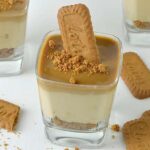The good bacteria are struggling to guard your health, and the bad bacteria are waiting to take over your health. The poor eating habit has strengthened the bad ones to harm us. They can ruin the whole system of immunity and metabolism. There are equal numbers of good and bad bacteria inside your gut, and bad bacteria surpassing good ones can affect the microbiome. Probiotics are helpful for good bacteria, and it arms them against bad ones.
What Are Probiotics?
Probiotics are live-good bacteria living naturally in the human body. There is a balance of good and bad bacteria. An imbalance would lead to diseases. The fermented foods and supplements help to maintain the balance of natural flora inside the body. Probiotics are composed of good bacteria that knock down the surpassing increase of Bad bacteria. Probiotics contribute to keeping up the health of the microbiome that is made up of several microbes. Microbes in the body are a diverse class of organisms consisting of protozoa, bacteria, and fungi. Just like fingerprints, every individual on earth has a different biome. A microbe can be classified as probiotic only when it has the following characteristics:
- It is easily isolated from human cells.
- Can survive the harsh condition of stomach and intestine after ingestion.
- Benefits your intestinal flora in some way.
- It is safe to use.
Different Types Of Probiotics
The most common types of probiotics are:
- Lactobacillus: It’s mainly found in fermented food products. It helps treat irritable bowel syndrome and inflammatory bowel disease.
- Saccharomyces: It’s a yeast strain and helpful in ulcerative colitis and irritable bowel syndrome.
- Bifidobacterium: It’s tough bacteria that can survive the harsh conditions of the stomach. It is effective in treating constipation, diarrhea due to antibiotics and lowers blood cholesterol levels.
- Lactococcus: It has antimicrobial properties and is most commonly found in dairy products.
Probiotics Foods To Add To Your Diet
You can get probiotics from your regular foods. Many health experts suggest that probiotic supplements are good in case you can’t get enough probiotics through the food.
Yogurt
Yogurt is one of the best natural probiotic sources with two bacterial strains. It is formed from the thickening of milk due to the production of lactic acid by bacterial strains. Yogurt can help you lose weight, build bone density, and treat ailments like diarrhea and IBS. Increasing your omega 3 intake, green tea extract, and green coffee beans can be also a great choice for weight loss. People who suffer from lactose intolerance can also include yogurt in their diet. Always use yogurt with live active cultures as processed or heat-treated products kill most of the precious bacteria.
Sauerkraut
Sauerkraut is fermented shredded cabbage prepared by adding lactobacillus served with sausage. It is a rich source of fiber, antioxidants, sodium, Iron, zeaxanthin, lutein, and manganese. It is also a reserve of several vitamins C, B, and K. Sauerkraut that contains all these qualities are unpasteurized because pasteurization kills the active culture bacteria.
Miso
Miso is prepared by adding fermented soybeans to rice and barley with added salts. It can be eaten with regular food and as soup which is rich in probiotics. It reduces the risk of cardiovascular problems. The recipe is rich in fiber, minerals, and vitamin K.
Cottage Cheese
Cottage cheese is a nutritious food enriched with vitamin B12, calcium, selenium, and phosphorus. They are crucial for gut health and cardiovascular health. As the cheese ages, it becomes richer in probiotic contents, provided it is made from unpasteurized milk. Some popular cheese includes mozzarella, swiss, cheddar, provolone, and gouda.
Natto
Natto is very common in Japan, high in Vitamin K2, it helps increase bone density. It has a bacillus subtilis-bacterial strain helpful in treating inflammation. It is also associated with improving skin elasticity, treating eczema, acne, and slowing down aging. It’s a fermented probiotic that keeps a check on gut health.
Pickles
Pickles are prepared from fermented veggies. The veggies are left for fermentation after adding salt and water. After a few days, it develops good bacteria. Pickles are low in calories and high in vitamin content. Pickles made at home are healthy and are a natural source of live bacteria culture. Pickles that contain vinegar are not probiotic-rich.
Conclusion
It’s time to change your diet when you are prone to infections, allergies, and diseases. According to Health Canal Publishing, probiotics address a variety of disorders in the body, and this fact demonstrates the significance of probiotics. Probiotics help maintain gut health that works on improving overall health. Probiotics are essential that can manage your good and bad bacteria levels. You can add them to your daily diet or can use supplements to improve your health. The microbiome present inside the gut is linked to immunity if it’s facing trouble, your body is bound to face affliction.




Leave a Reply